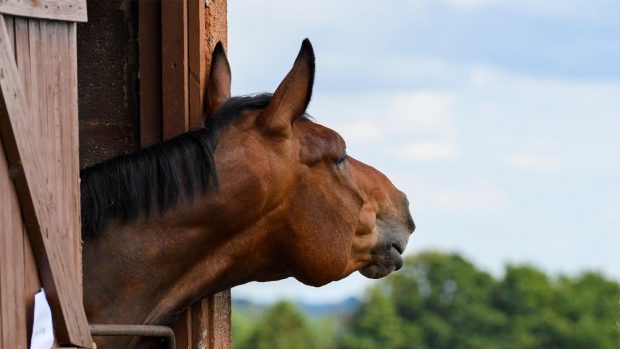Read more about feeding horses
Some horses have a genetic tendency to be highly strung despite what they are fed. A healthy market for feed additives developed to have a calming effect helps cater for this.
Magnesium is one of the more popular active ingredients.
Recent independent testing, by RAC students Sarah Field and Nikki Stradling, of a commercially available magnesium supplement revealed that heart rate (a reliable measure of arousal) in supplemented animals was significantly reduced when confronted with everyday stressors like short periods of isolation.
So how does magnesium exert a calming effect?
It has the potential to reduce the release of dopamine — a brain hormone also linked to hyperactivity.
Interestingly, dopamine release within the brain leads to a higher level of eye blinking.
In another study, we found that magnesium-supplemented animals exhibited lower blink rates, which indeed suggests that this active ingredient functions at the level of lowered brain dopamine.
Calming supplements do not work for all horses.
In competition animals consideration of the risks of using a possibly prohibited substance — see the FEI website — should be discussed with your vet.
For the full veterinary article on feeding stereotypies, see the current issue of Horse & Hound (16 June, 2011)
Find out more about feeding horses




